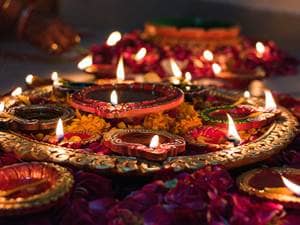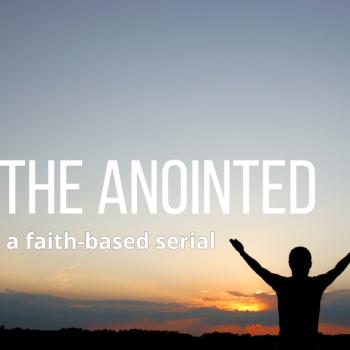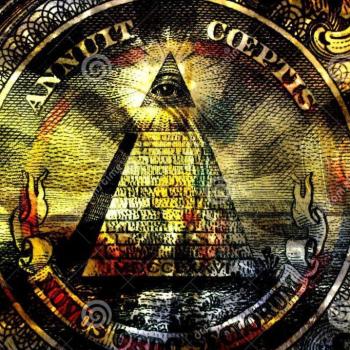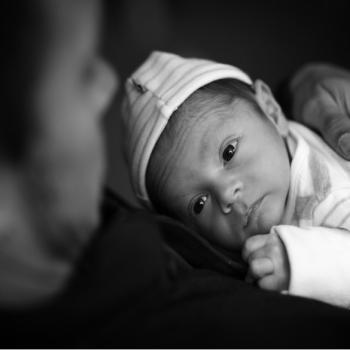
Diwali (also called Deepavali) is a major Hindu five-day festival that celebrates the triumph of light over darkness and the beginning of a new year. The history and traditions behind the festival differ according to the community, and each day of the festival has different legends to guide its celebration.
Some believe that Diwali is a commemoration of Rama, an avatar of Vishnu, as he returned from exile with his wife, Sita. Others associate Diwali with the goddess Lakshmi and her marriage to Vishnu. Still others celebrate Diwali as the victory of the goddess Kali over evil forces or that of Krishna over a demon. All of these are stories of divine victories over dark and demonic forces that threatened to overwhelm the world with evil. The legends and beliefs vary widely across Hindu, Jain, and Sikh communities—all of whom celebrate Diwali—yet they are unified in their common agreement that it is a time to rejoice in goodness, light, and truth, and that it ushers in a new year with hope. Diwali reminds Hindus that in the ultimate battle between good and evil, good will prevail.
Those who celebrate Diwali will prepare for the season by thoroughly cleaning their homes and decorating them with oil lamps and candles. Many will spend extra time in worship, puja, and prepare special meals and buy gifts for family members. Celebrants buy new clothes for the festival and make a variety of sweet desserts to share with family and friends. Since it is considered the beginning of a new year, businesses close their yearly accounts and review their books, starting afresh after the holiday.
Because of the lunisolar nature of the Hindu calendar, Diwali is a moving festival, but always occurs in October or November. The heart of the festival is on the third day, which is ends in the darkest night of the month. The celebration includes firecrackers, dancing, feasting, fairs, burning effigies of the demon-god Ravana, and prayers to Lakshmi, the goddess of prosperity, for the year ahead. The elephant-headed god, Ganesha, is also a central part of the worship and festivities for, as the god of wisdom, he plays a key part in the hopes and prayers for the new year. Some people will decorate the image of the deity with flowers and make offerings of food and money.
Diwali is, perhaps, the most popular of Hindu holidays, and its many oil lamps, its emphasis on family and hope, and its joyous spirit make it a season of enchantment and bewitching beauty. It draws together the great diversity of Hindu beliefs and philosophies into a powerful and concerted focus on divine goodness and ultimate hope. It infuses an essential harmony into a wildly complex system of interrelated doctrines and practices and legends and beliefs. It reinforces their common values of good over evil, of divine benevolence over demonic influences, and of the Sanatana Dharma, the “eternal teaching” of existence and reality.
Learn more about puja and family practices of Hindu worship here.
11/15/2023 1:24:45 AM











